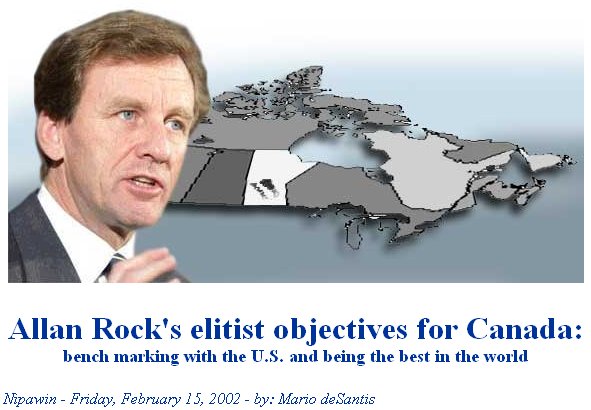Learning Stories
by
Mario deSantis
mariodesantis@hotmail.com
“I am a Canadian, free to speak without fear, free to worship in my own way, free to stand for what I think right, free to oppose what I believe wrong, and free to choose those who shall govern my country.” - -The Rt. Hon. John Diefenbaker, Canadian Bill of Rights, 1960
“The whole judicial system is at issue, it's worth more than one person.”--Serge Kujawa, Saskatchewan Crown Prosecutor, 1991
“The system is not more worth than one person's rights.”--Mario deSantis, 2002
Ensign Stories © Mario deSantis and Ensign
|
|
 "There is no single, simple model of globalization... We do not propose to work out a single intellectual and policy program"-- Dani Rodrik, Harvard economist We have been describing the BIG LIE of the Free Market and at the same time we have been delineating economic and social policies congruent with the common and individual good as perceived by different people in different countries. What is individually good in Canada is not necessarily individually good in India, and what is common good in India is not necessarily common good in Canada, and... The only single thing which is good individually and collectively is the globalization of ideas and social understanding. It is my understanding that Allan Rock, Minister of Industry, doesn't understand what is common good and what is individual good for Canada. I agree with Allan Rock's statement that Canadian incomes have been declining for a generation, but I disagree with him when he says
This reminds me of the University of Toronto or Queen's University when their boards of governors want to hike the student fees for the purpose to become the best universities in the world. And I ask, I have two sons in Saskatchewan, and why should the University of Toronto or Queen's be the best universities in the world? Adam Smith reminded us in his book The Wealth of Nations that our natural individual differences and talents are minimal, and as a consequence we have the social responsibilities to provide equal opportunities for our people, men, women, young and old, in an unequal world. And therefore what we need is not to be 'the best in the world and second to none', but to be the best of ourselves in a better world for all. Allan Rock goes on to say that "Relative to the U.S., the world's benchmark economy, real incomes per capita in Canada have been steadily falling over much of the last two decades." We have been expressing our disappointment to the permeating obsession of our elitist leadership to look for averages of averages of our pseudo scientific correlating economic indicators, and Allan Rock goes further to say
We are going to show in pictures what the United States has accomplished in the decade 1989-1999, and we hope that Allan Rock will be able to understand better which economic policies are best for Canada rather than using the United States as a measurable benchmark for the world to follow. These charts listed below spell out the situation in the United States. (Click on the chart's name below to make it appear.) Personal Savings Rates 1959 - 98 Change in After-Tax family Income 1977 - 99 Top 1% Share of Household Wealth 1922 - 97 Real Value of the Minimum Wage 1969 - 99 Median Wage 1973 - 98 in 1998 dollars Americans Without Health Insurance 1987 - 98 Ratio of CEO pay to Average Worker Pay CEO Pay, Worker Pay and Inflation 1990 - 98 References Pertinent articles in Ensign Rock says Canada is in decline Ground lost to U.S. for two decades, Liberals admit: 'We risk an outflow of talent and capital,' long-range innovation plan warns. Alan Toulin, February 13, 2002, National Post http://www.nationalpost.com/home/story.html?f=/stories/20020213/43399.html Canada's Innovation Strategy Government of Canada http://www.innovationstrategy.gc.ca/cmb/innovation.nsf/pageE/Contents Divided Decade: Economic Disparity at the Century's Turn, by Chuck Collins, Chris Hartman and Holly Sklar, © United for a Fair Economy, December 15, 1999 http://www.ufenet.org/press/archive/1999/Divided_Decade/divided_decade.html |
